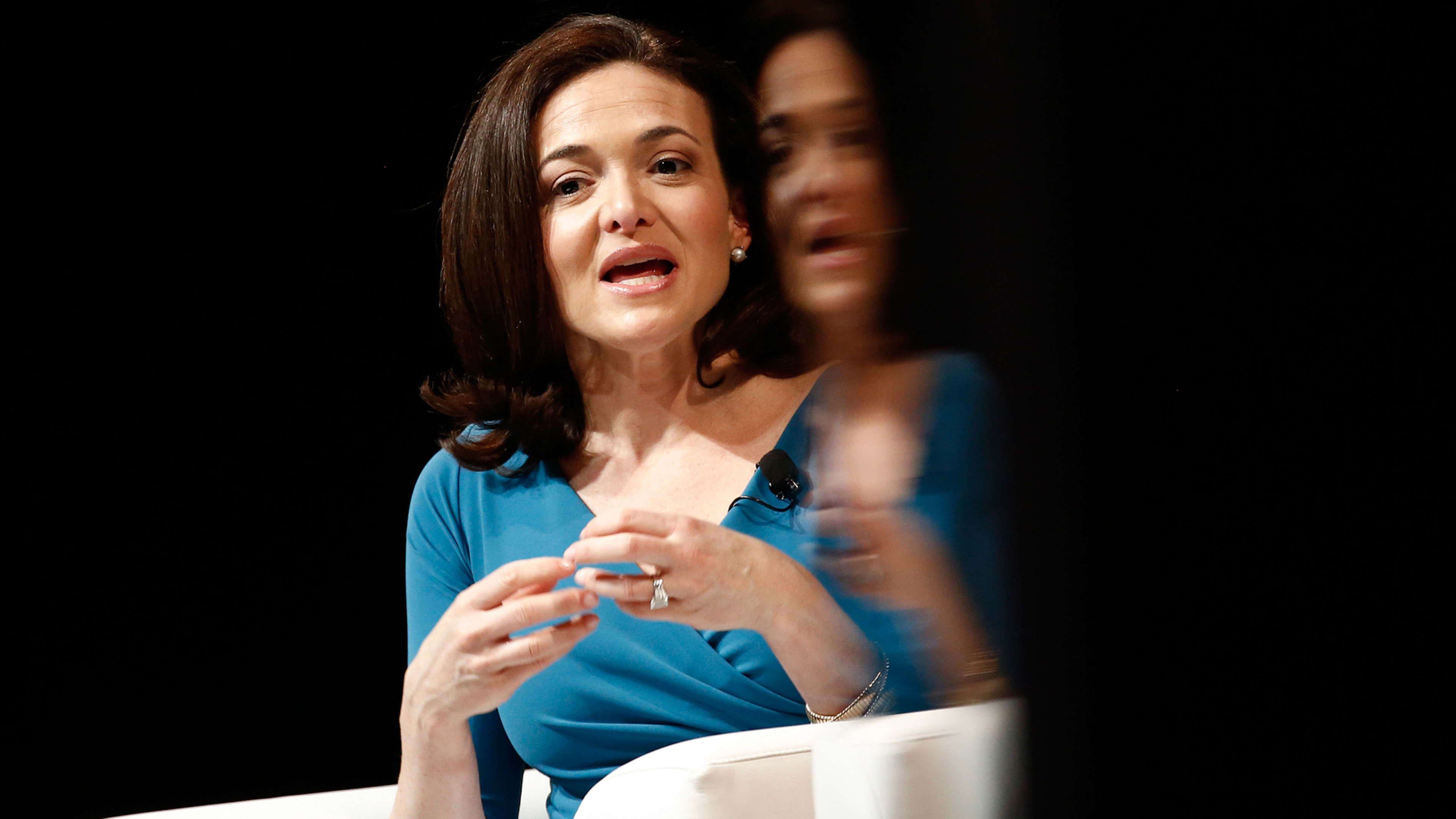Facebook COO Sheryl Sandberg’s world came to a sudden halt when her husband, Dave Goldberg, died suddenly, at age 47, during a spring 2015 trip to Mexico. In the months that followed, the self-assured author of Lean In found herself lost in grief, adrift from the life she and Goldberg had built.
“[My self-confidence] just kind of crumbled in every area,” she tells Time magazine in this month’s cover story. “I didn’t think I could be a good friend. I didn’t feel like I could do my job.”
But now she has come roaring back—to her daily work at Facebook and to her place of influence in the broader corporate landscape. Her new book, Option B: Facing Adversity, Building Resilience, and Finding Joy comes out today. And in February, she announced changes to Facebook’s bereavement leave policy.
“Starting today, Facebook employees will have up to 20 days paid leave to grieve an immediate family member, up to 10 days to grieve an extended family member, and will be able to take up to six weeks of paid leave to care for a sick relative,” she wrote in a Facebook post.
Advocates, including organizations like Family Values @ Work, expressed hope that Facebook’s shift in policy would prompt other companies to follow suit. (As of March 2016, just 13% of private-sector employees have access to paid family leave, according to the Bureau of Labor Statistics.)
But Jim Santucci, executive director of Kara—the Palo Alto, Calif.-based grief counseling organization that Sandberg turned to for support following Goldberg’s death—argues that policy changes are not enough. To better serve grieving employees, companies need to “develop a compassionate culture.”
“When things do happen, there [should be] a sense of, ‘we need to support the person,'” Santucci says. He adds: “It starts at the top.”
Of course, there is a place for corporate procedure. “There are some very practical things that organizations can do so that there’s a sense of what they can do to support [the employee] and what the organization can do to support itself,” he says. For example, developing a protocol for handling emails sent to an employee who has died. “How does that make people feel, to see that person on the cc list?”
But Santucci cautions against relying on policy without addressing culture. In his estimation, Sandberg’s example of vulnerability has done as much for other Facebook employees staring down grief as her decision to double Facebook’s pre-approved days of paid leave. Sandberg’s leadership, he says, has normalized facets of grief that an organization might otherwise avoid: “It’s okay to be sad, and it’s okay to acknowledge that someone is sad. These are things that we should talk about.”
Providing resources like counseling through a group like Kara is another option. Founded in the 1970s, Kara offers grieving families the option to participate in group meetings or one-on-one counseling. Trained volunteers lead the sessions, often opening with a ritual. Santucci, who lost his young daughter nearly a decade ago, leads a group for parents. To start each meeting, parents light a candle for their child, and then the group observes a moment of silence. “My child died: Why do I need to live? What meaning is there? It provides a really safe space for people to talk about what they’re thinking and feeling,” he says.
Kara, which supports itself through donations, hosted Sandberg as the keynote speaker at its 40th anniversary benefit over the weekend. “Generations prior to me—they didn’t talk about this kind of stuff,” Santucci says. He’s hopeful that Sandberg’s book and example will help organizations, and society more broadly, better handle grief. “We should be able to help each other and build resilience. But it’s slow.”
Recognize your brand’s excellence by applying to this year’s Brands That Matter Awards before the early-rate deadline, May 3.
